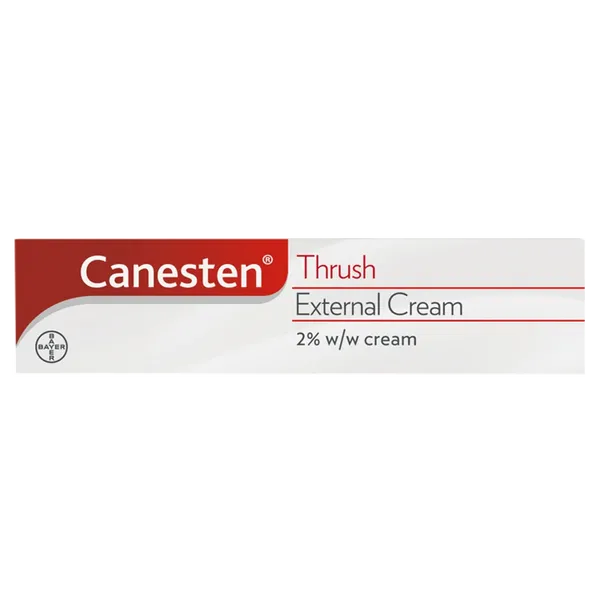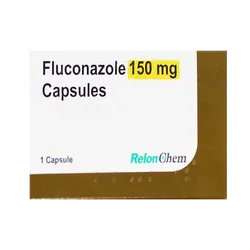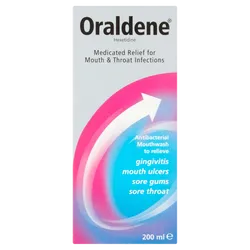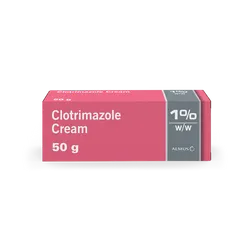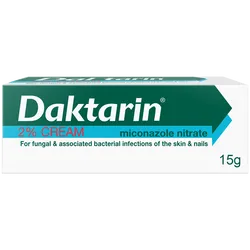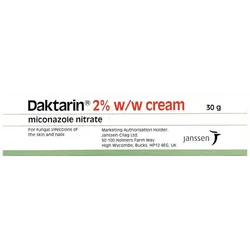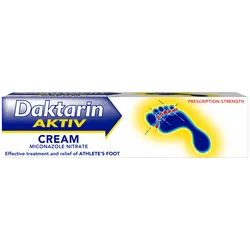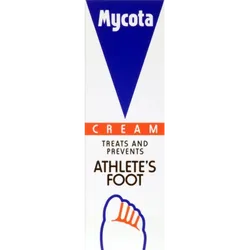Canesten treatments for thrush relieve irritation of the vulva (vulvitis) which is caused by vaginal thrush (candidiasis).
Although this Canesten Thrust cream provides relief from the external irritation caused by vaginal thrush, it cannot treat any internal (vaginal) cause of the infection. Ask your doctor or pharmacist to recommend a treatment for this.
Only Canesten treatments for thrush if you have been previously diagnosed by your doctor as having vaginal thrush. Some women suffer from recurrent attacks of thrush. To reduce the frequency of these attacks, the sexual partner's penis can be treated with this cream as well, even if they have no symptoms of thrush.
The active substance in Canesten Thrush Cream is clotrimazole. Clotrimazole belongs to a group of medicines called azoles and is an antifungal agent which fights the cause of infections such as vaginal thrush.
What is Thrush?
Thrush is an infection caused by a yeast called Candida. This yeast normally lives in your body quite happily without doing you any harm. But when the natural pH balance of your vagina is upset - which can easily happen - Candida can multiply. And that's when you may start to itch and develop thrush.
Who gets Thrush?
Don't worry or be embarrassed about having thrush, as thrush is much more common than you might think - 3 out of 4 women have it at some point in their lives, especially if they are under the age of 20 or pregnant, and it is commonly suffered around the time of a period.
Men are not immune. They can get thrush too, though only a few develop the rash and itchiness. Most male sufferers act as carriers, without actually having the symptoms. To help prevent re-infection, make sure your partner uses Canesten treatments for thrush as well as you.
How does the infection occur?
Normally, there is a delicate balance between bacteria and yeasts that live naturally within the vagina. However, this balance is easily upset by any of the following factors which could allow the yeasts to overgrow, leading to thrush infection:
- Intake of medicines such as antibiotics
- Trauma of sexual activity or tampons
- Stress
- Perfumed soap, shower gels and bubble baths
- Menstruation
- Wearing tight clothing
- Pregnancy
It is important to treat thrush during pregnancy, as evidence shows that it could be passed onto your baby (in the form of oral thrush or other fungal infections) through your birth canal when giving birth. If you are pregnant and think you may have thrush, please visit your doctor.
What are the symptoms of Thrush?
The main symptom - and by far the most irritating - is the itching. You may also feel a burning soreness and this can be accompanied by a whitish odourless discharge.
Though very uncomfortable, these symptoms can be sorted out quickly and easily, by treating at the site of infection as well as soothing the irritation.
Most women seek help for relief of external itching. However, it is important that the infection is treated internally as well as externally, to prevent symptoms from returning.
Further information can be found by clicking the following link:
http://www.canesten.co.uk/en/female/symptoms/thrush/symptoms/
